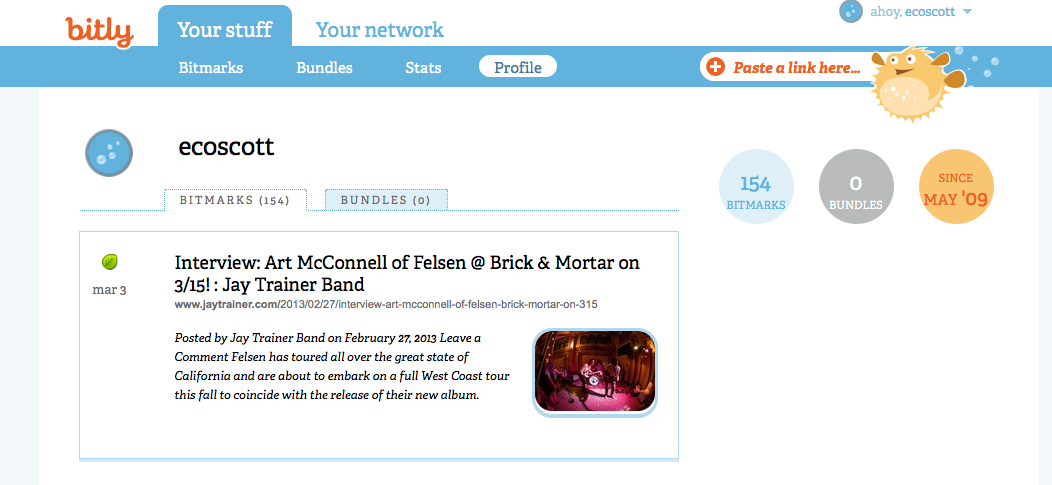Understanding your web traffic as a self-publisher

Being a self-publisher, whether that means you're an author or a blogger, means that you are taking on a lot of the duties that traditionally are done by a marketing department. The good news is that the Internet gives you a lot of power and options, while the more challenging news is basically the same - you have to manage and make the decisions around all of those options and answer to yourself as decision-maker.
As both a blogger and self-published author, one of the simplest and most powerful tools I use is a free service called Bit.ly.
Bit.ly is a url shortener. That means it takes a long "url" like:
http://scottandrewjames.com/kickstarter-for-authors-5-ways-crowdfunding-...
And turns it into something much shorter, like:
http://bit.ly/13AVnzV
Why shorten?
A shorter url is great for social networks where you have a limited number of characters. The best example of this is Twitter, where you need to make your message 140 characters or less. Having a shorter url will allow you to fit more information in a short amount of space.
The special advantages
But! The even better part is that Bit.ly gives you information about who is clicking on your link. Bit.ly automatically keeps track of where people come to your link from.
For example, when I published my book I knew I would promote it a lot on my Twitter and Facebook accounts. I wanted to know if more people clicked through to my Amazon book listing from Twitter or Facebook, so I used a bit.ly shortened link.
After two weeks or so, I could see that I had 5x as many visitors clicking through from Facebook. Because of that, I started spending more time promoting my book on Facebook rather than Twitter.
Extra advantage
As a final advantage, Bit.ly allows you to customize your shortened url. So that bit.ly url I used earlier that looked like this: "http://bit.ly/13AVnzV"
Could be edited to look like this: "http://bit.ly/scotts-book"
That gives it an extra feel of personalization.
Have any of you used Bit.ly for book or article promotion? What did you learn or how have you used it?
Screenshot image courtesy of author.

3 comments